-
Get 10% off with code HELLO10OFF
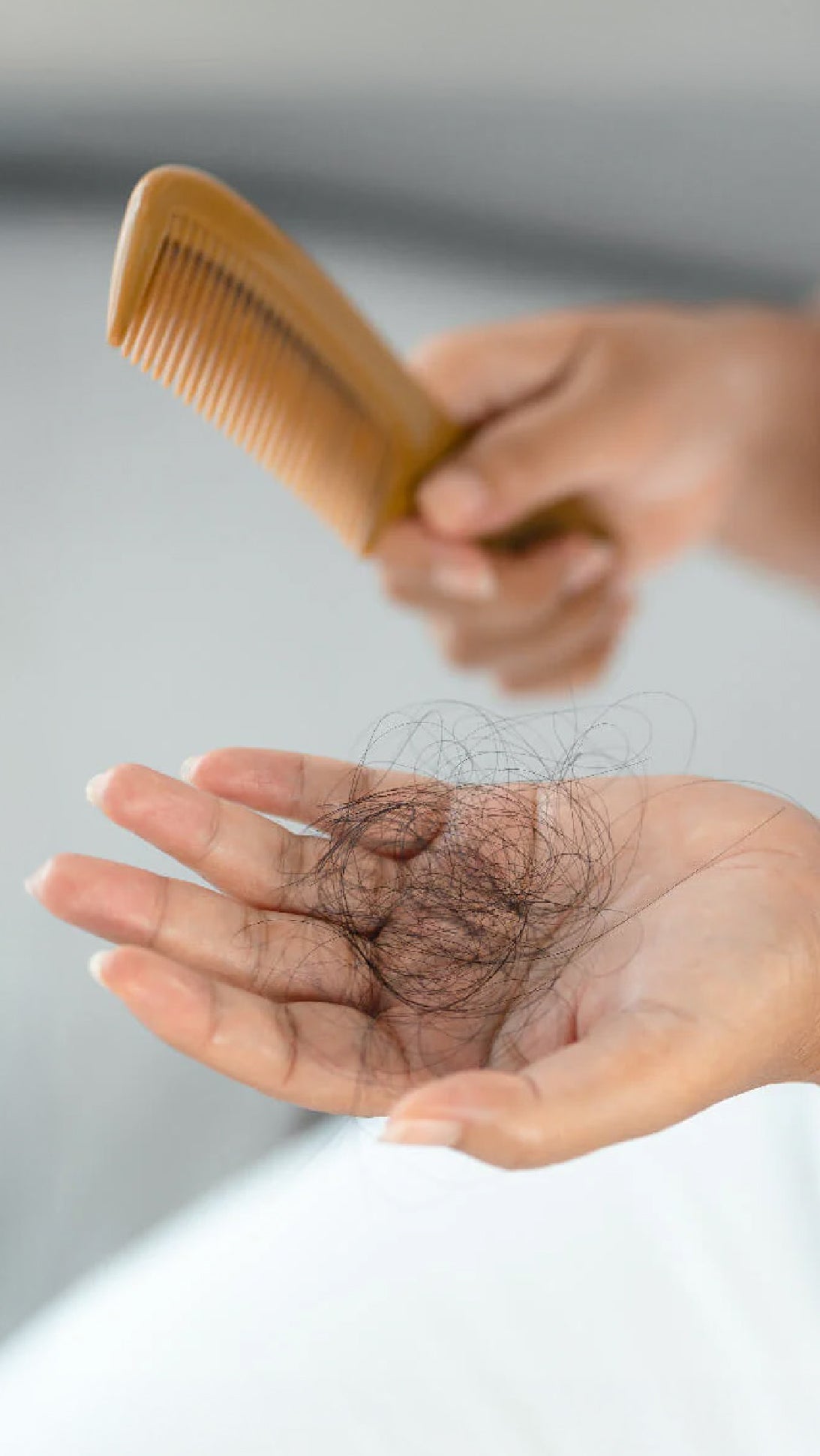
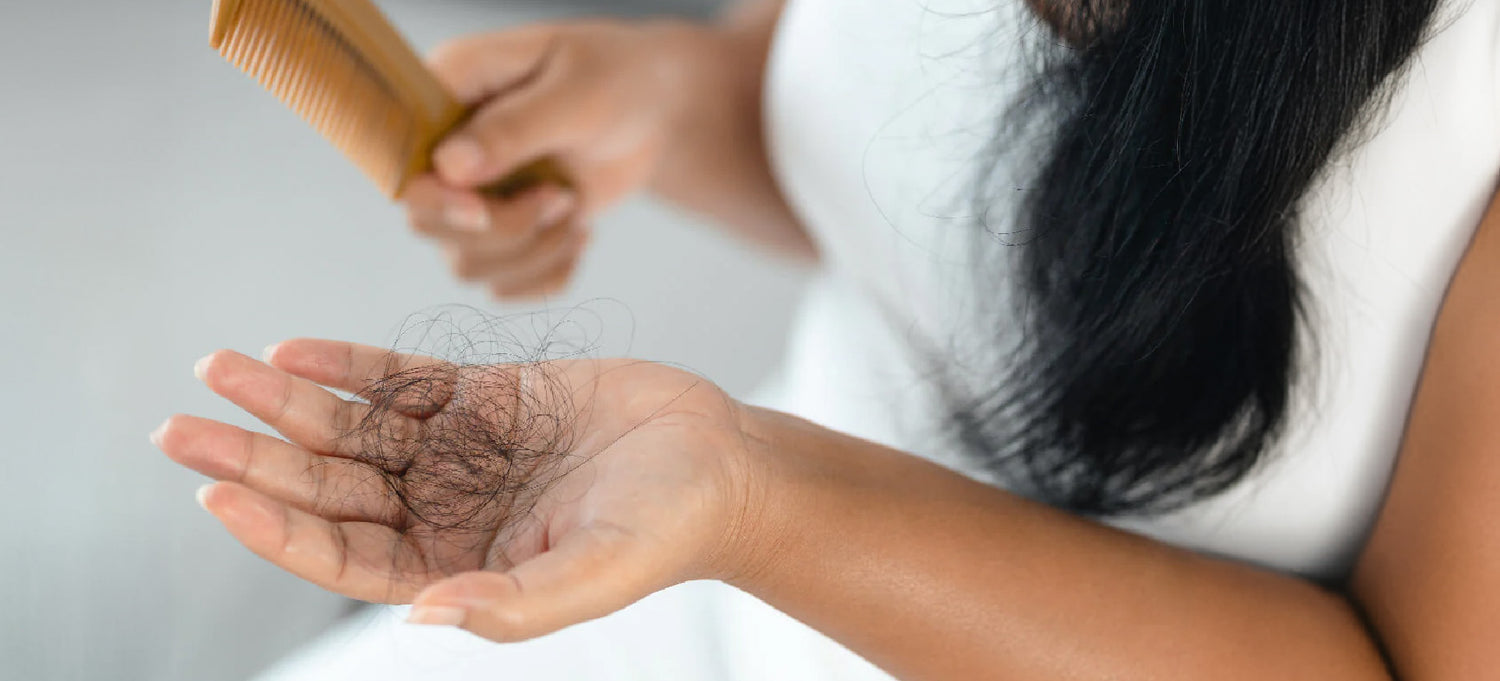
What Causes Hair Loss In Menopause?
If you’ve noticed handfuls of hair in your shower drain, or an unusually high amount of hair left on your hairbrush, you may be experiencing hair loss due to menopause. Some women experience a receding hairline or overall hair thinning, especially at the part. You may notice your hair becomes drier and generally duller as well.
HAIR LOSS AND DRY HAIR IN MENOPAUSE IS GENERALLY ATTRIBUTED TO:
- Declining estrogen levels
- Falling levels of estrogen and progesterone. When this happens, testosterone can rise. When testosterone gets converted to Dihydrotestosterone (DHT) in the body, it can cause your hair to fall out.
- High cortisol can also contribute to hair loss. For one thing, while your adrenals are pumping out cortisol, they are not pumping out estrogen and progesterone which can support healthy hair growth. Cortisol also increases 5 alpha-reductase, an enzyme that helps convert testosterone to DHT…which again, causes hair loss
- Overactive or under-active thyroid. Both conditions can push hair into a falling-out phase.
Women with PCOS or thyroid disorder may find that menopause exacerbates their struggles with hair loss, unfortunately.
What can I do about it?
Losing your hair is not something you have to accept.
Your provider may suggest medications like spironolactone, which is a blood pressure medication sometimes used in an off-label manner to help control the excess androgens that are often at the root of hair loss and hormonal acne. Hormone replacement therapy (HRT) helps in some cases as well. Platelet-rich plasma (PRP) therapy, a treatment where your platelets are injected into the scalp to stimulate hair growth is gaining in popularity too.
Ultimately, your hair needs lots of nutrients to look and feel its best. A diet rich in healthy fats, particularly Omega 3s, and iron, biotin, zinc, vitamin D, and antioxidants can go a long way toward restoring your hair to a thicker, fuller state.
Thicker, fuller hair starts here
Thousands of menopausal women (including me!) have used these products to help get their hair back to good.
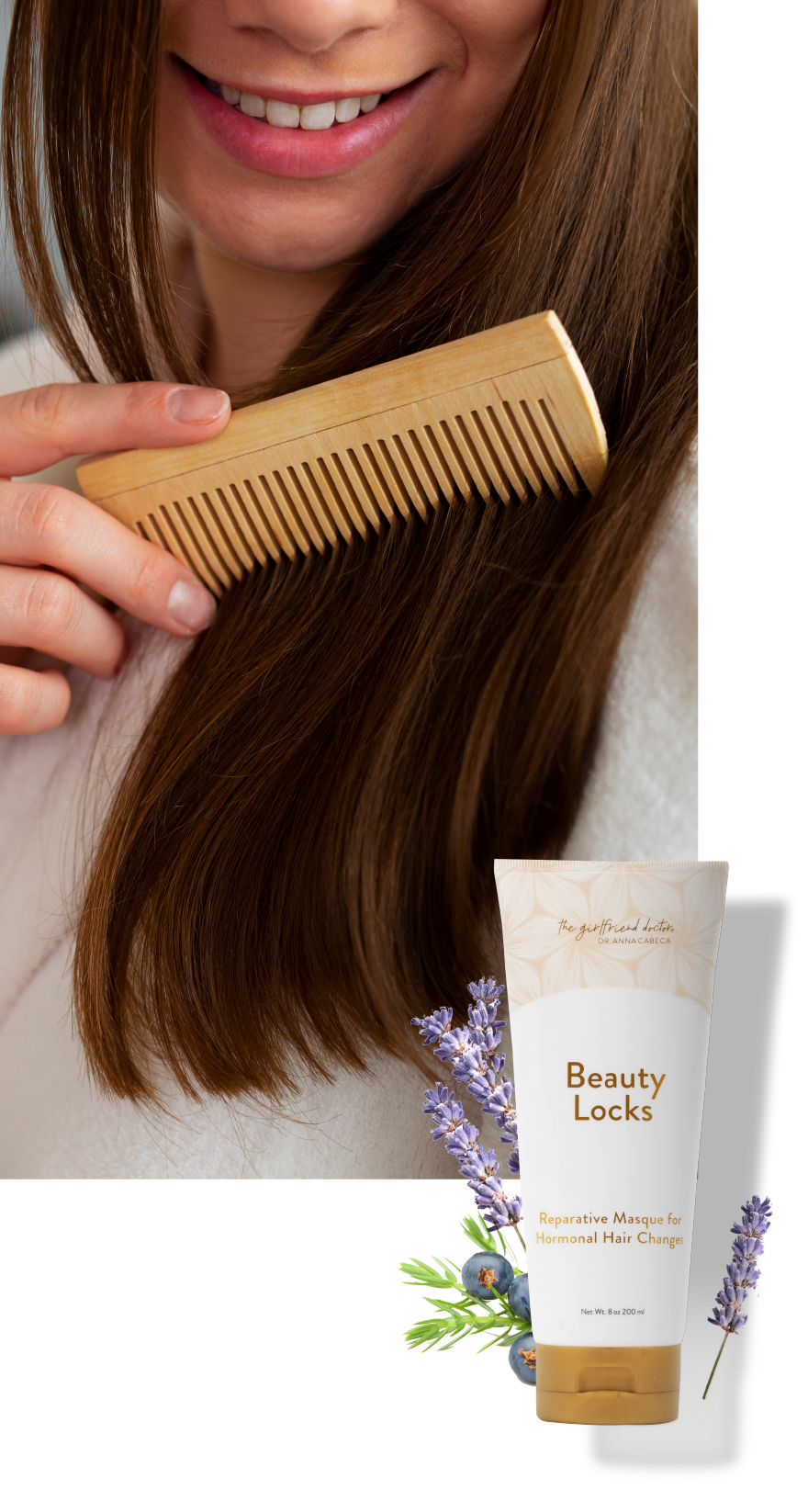
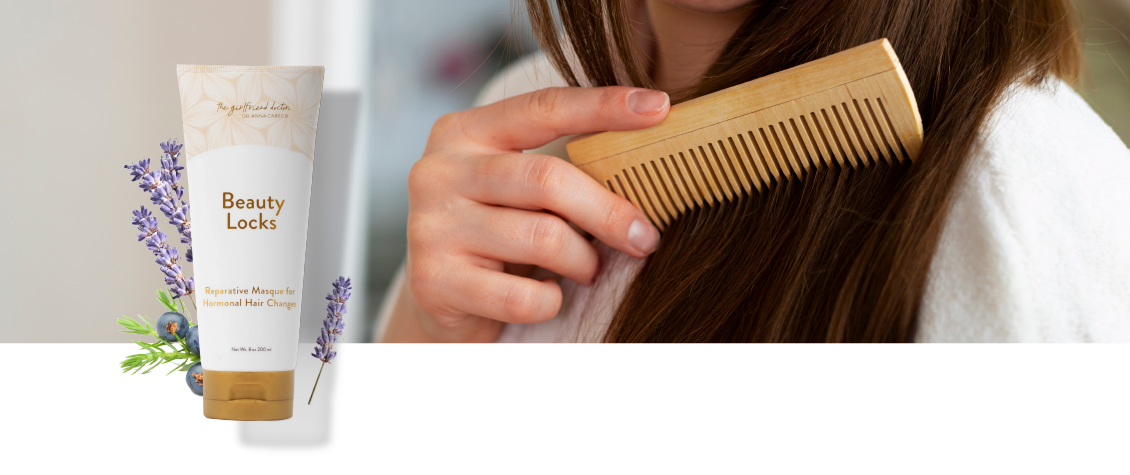
WHICH IS WHY I CREATED:
Beauty Locks
All-natural hair restoration superstars like lavender and Meadowfoam Seed Oil can help restore dry and brittle hair while encouraging new growth.
FEATURED INGREDIENTS:


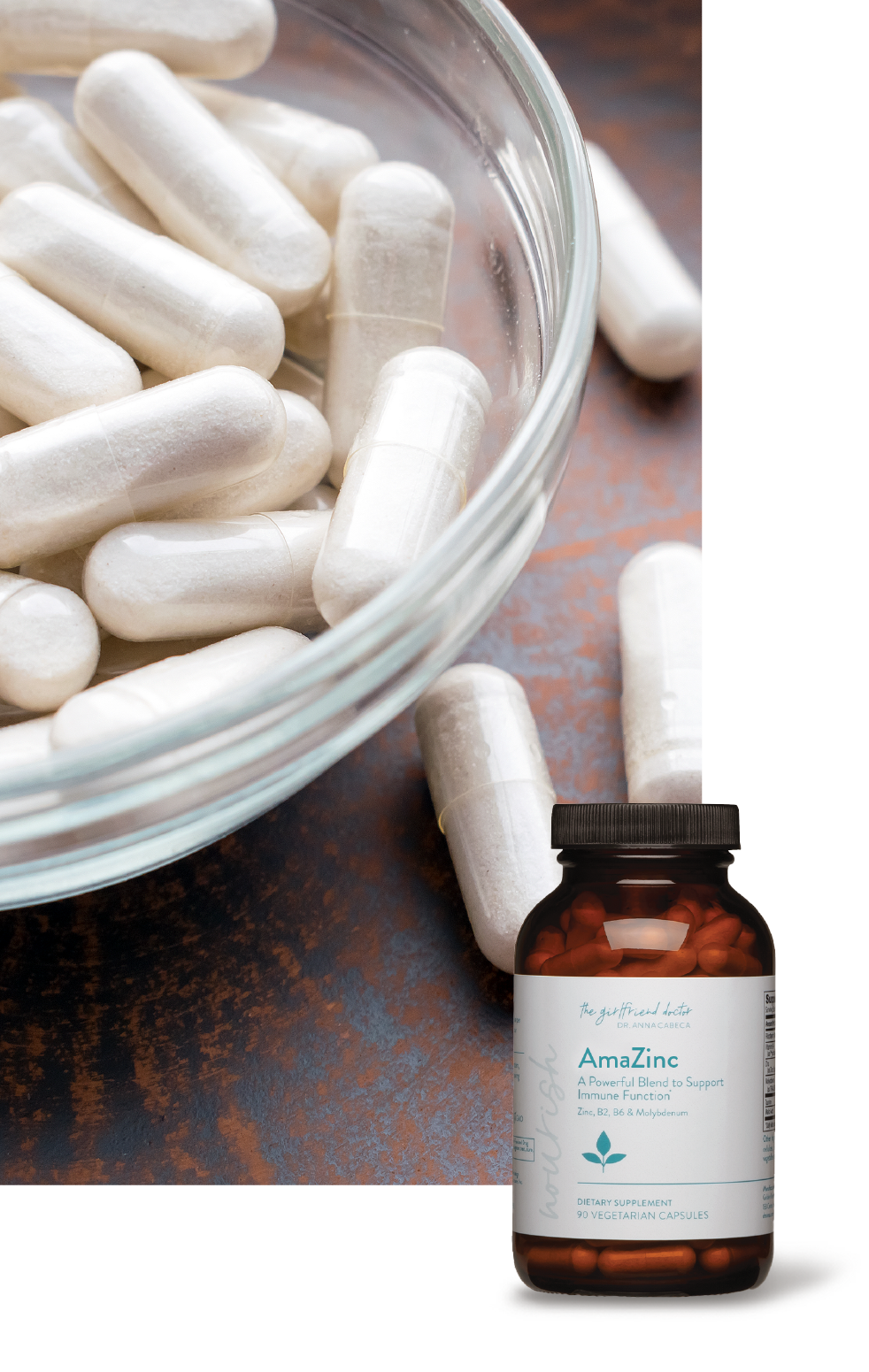
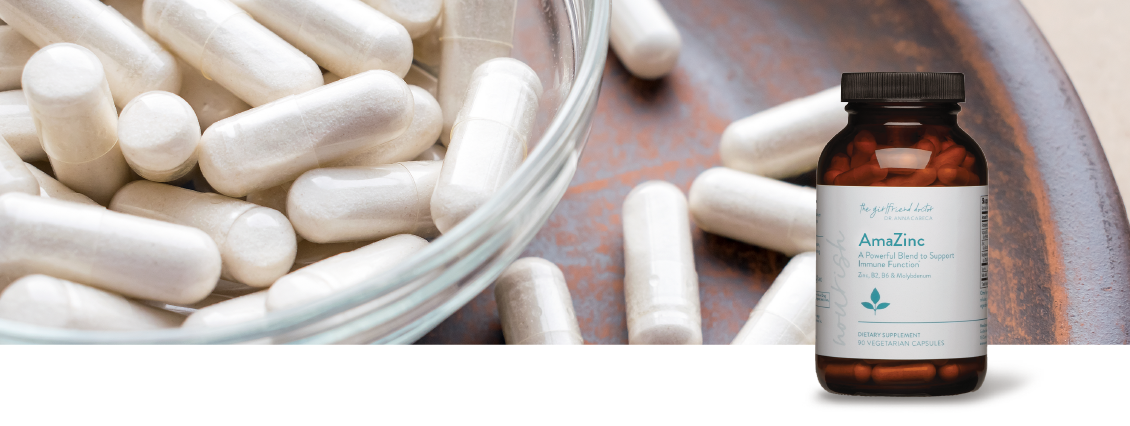
AmaZinc
Zinc supports blocking the enzyme 5 alpha-reductase that initiates the conversion of testosterone to DHT, the form of testosterone that causes hair loss.
- Support wellness from within
- AmaZinc is zinc blended with molybdenum and B6 to help your body fully retain this vital mineral
- Add it to your daily routine for heightened immunity, glowing skin, a healthy metabolism, and normal hearing and vision.
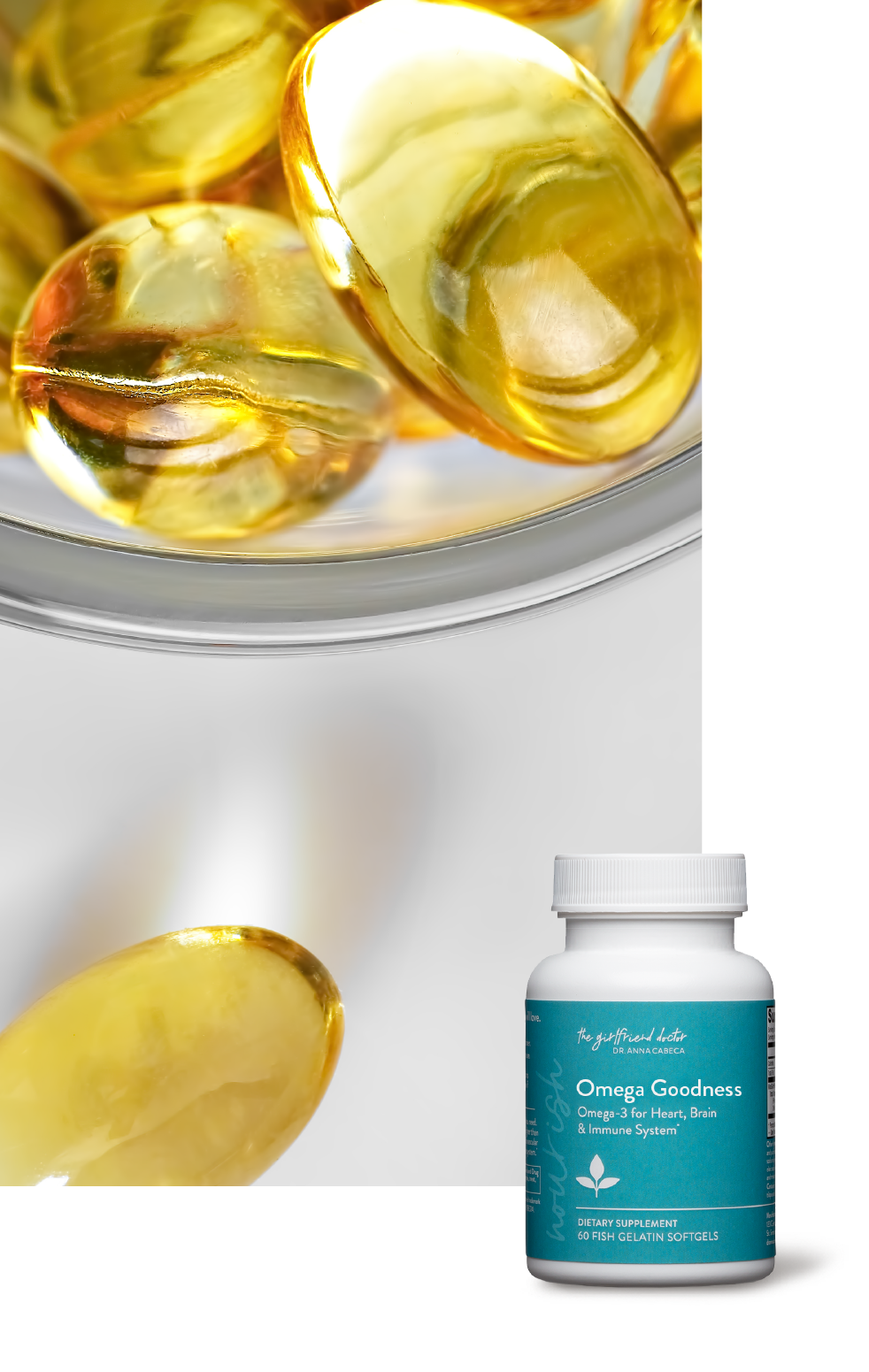
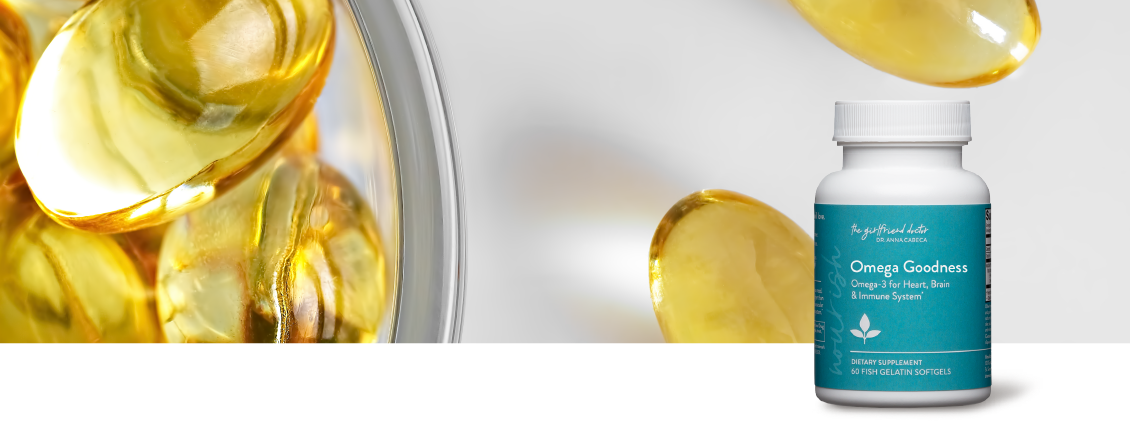
Omega Goodness
Omega 3s are fantastic for your hair. They nourish your follicles and help support healthy inflammation as well as circulation to the scalp.
- Positively Affects the Production of Arachidonic Acid-Derived Eicosanoids*
- Supports Cardiovascular Health*
- Supports Healthy Mental Functioning*
- Supports Healthy Glucose and Insulin Metabolism*
- By Supplying the Precursors EPA and DHA, Helps the Body Generate Specialized Proresolving Lipid Mediators, Such as Resolvins and Protectins*
Other Things You Can Do To Help With Hair Loss:
-
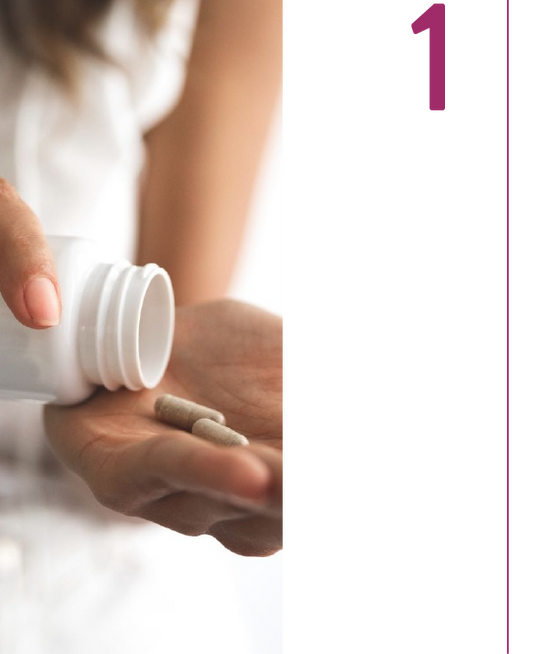
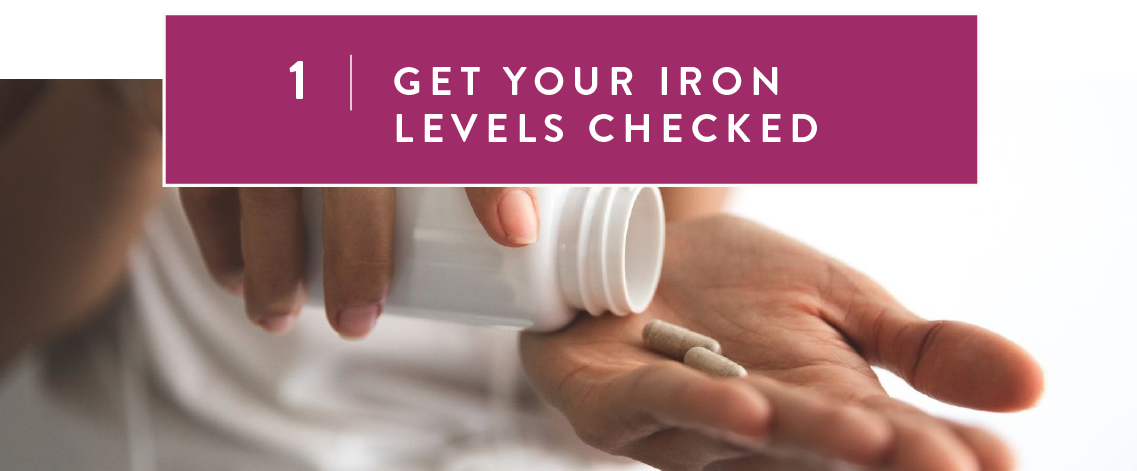
-
GET YOUR IRON LEVELS CHECKED
A full third of women aged 51-64 are low in iron, and this can trigger hair loss since iron binds to a protein called ferritin that protects against hair loss. Have your doctor check your iron and ferritin levels to see if you need to take an iron supplement. Optimal ferritin levels are approximately 50 ng/ml.
Try my favorite mocktail recipe that’s loaded with iron, calcium, and magnesium here.
-
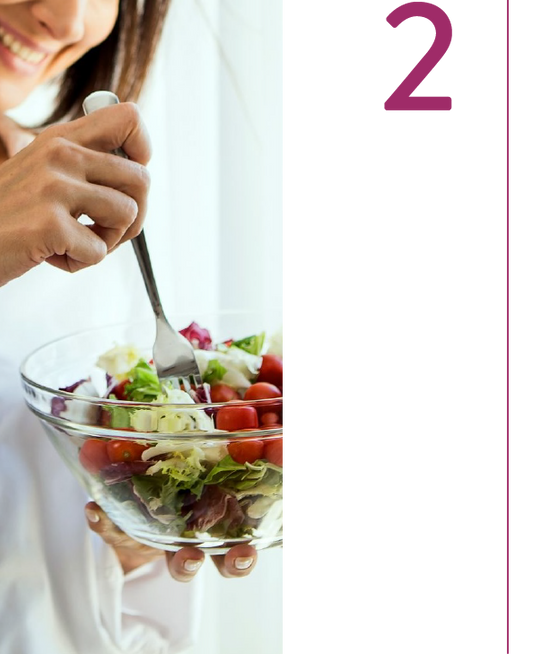
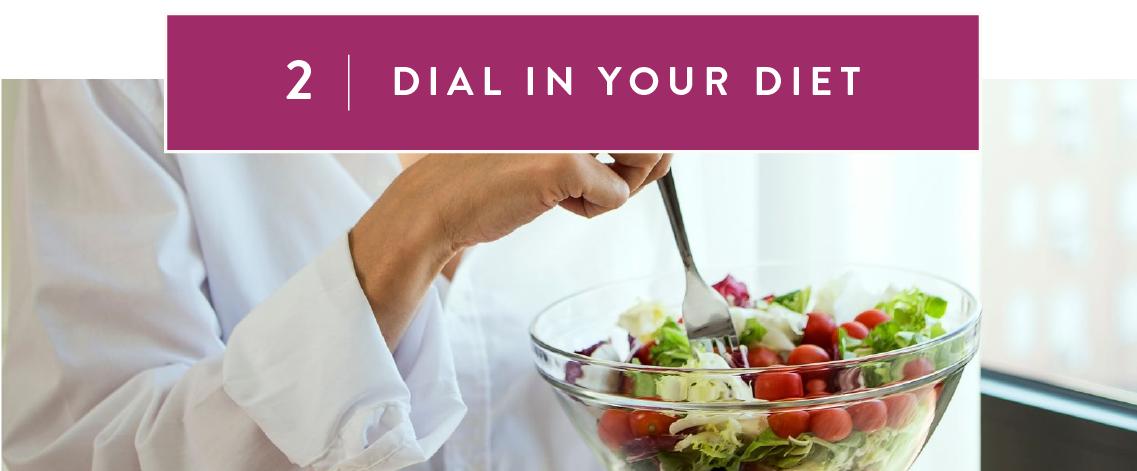
-
DIAL IN YOUR DIET
Hair loss usually requires a diet overhaul to help pump up the nutrients and balance your hormones. The ideal diet for menopausal women includes plenty of healthy fats (your roots love this!), moderate protein (crucial for follicles), and lots of alkalinizing vegetables which include the nutrients your body needs to work on restoring luster to your hair.
For an easy-to-follow meal plan to jumpstart your diet, check this out.
-
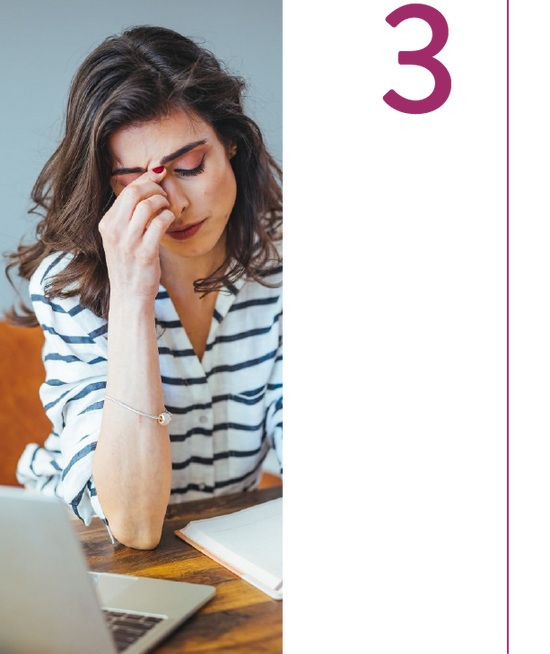
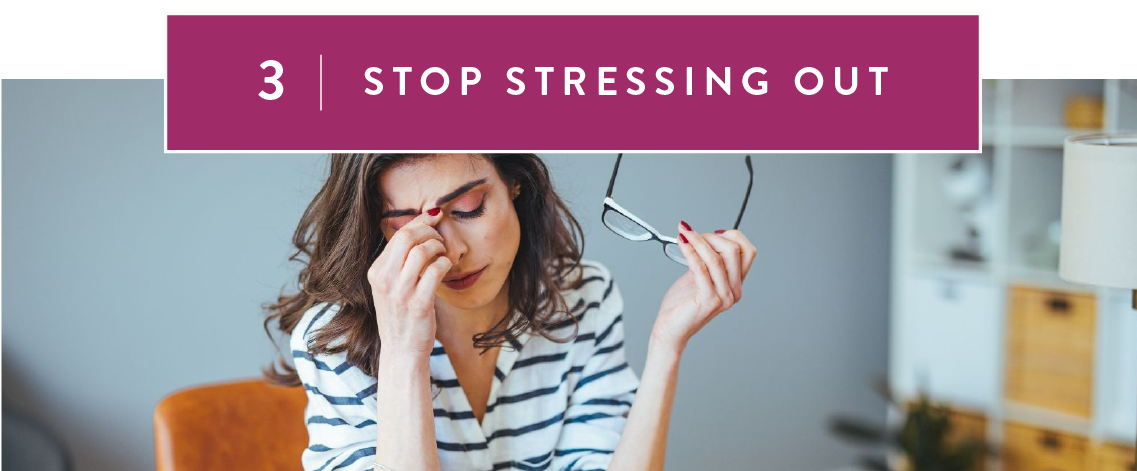
-
STOP STRESSING OUT
Stress is bad for your body. It’s bad for your hormones. And it’s bad for your hair. While it takes some time to work on reducing your stress levels, start by incorporating activities you love into your daily routine.
For a great exercise in taking control of your stress levels, read this.
Don’t ignore hair loss
You can regain your hair but don’t wait to start taking action. Once a hair follicle has shrunk due to DHT, it can’t regrow thick and full hair. So you want to address the issue as soon as you possibly can. Waiting will only increase the mental and emotional toll this troubling issue takes.







